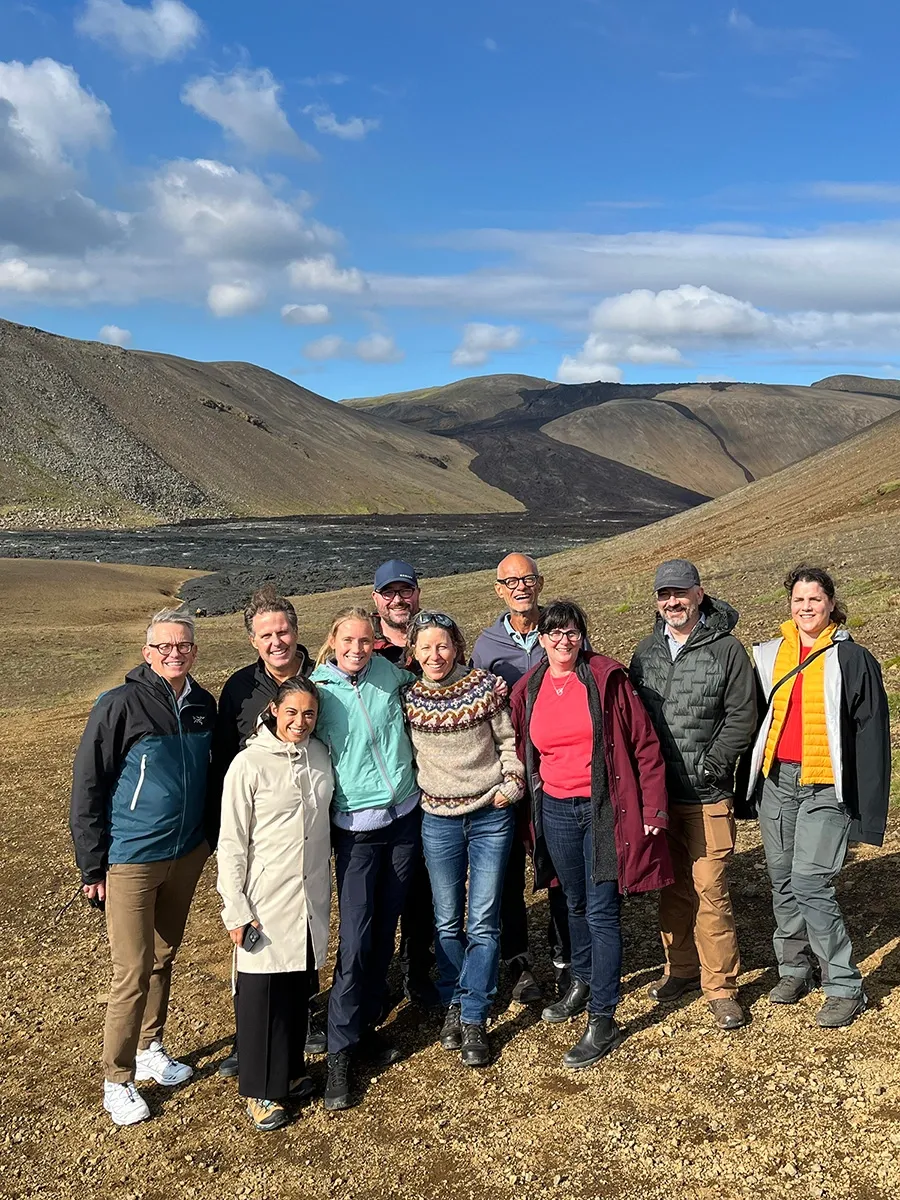The Nordic Health Crises University Network (HealthCrisNet) gathered for its first-ever meeting in Reykjavík, Iceland, from 27-29 August 2025. Established earlier this year with funding from NordForsk, the network brings together universities from across the Nordic region to strengthen preparedness and resilience in the face of health crises.
The network's mission is clear: to build long-term Nordic cooperation and ensure that universities play a leading role in shaping society's response to crises such as pandemics and extreme weather events. By pooling expertise from different fields and Nordic countries, HealthCrisNet aims to foster interdisciplinary collaboration-seen as essential for effective crisis management.
"Trust and communication must be built before a crisis, in order to effectively collaborate during a crisis was a central message emerging from the Reykjavík meeting", says Caroline de Groot, coordinator at the Centre for Health Crises . Members stressed that understanding each other's strengths and approaches across disciplines will be key to responding quickly and effectively when crises occur.

The meeting combined presentations of ongoing work with discussions on shared priorities and future activities. The group also presented a mapping of health crises expertise at Nordic universities, as a first step to establishing a larger university network among Nordic universities. Planning began for the first HealthCrisNet symposium in April 2026. The meeting also welcomed Gudrun Aspelund, Chief Epidemiologist of Iceland and member of the NordPrep network, who shared insights into NordPrep's work and discussed areas for future collaboration. Participants also visited Grindavík, witnessing the aftermath of recent volcanic eruptions - an experience that underscored the urgency of preparedness and the value of learning across scientific, medical, and social disciplines.
Looking ahead, HealthCrisNet will continue to grow as a platform to catalyze transdisciplinary research, knowledge exchange, and collaboration across the Nordic countries. Through joint projects, research visitis, publications, and exchanges, the network aims to strengthen both academic cooperation and the region's capacity to face health crises together.
About HealthCrisNet
The aim of the HealthCrisNet is to contribute to the strengthening of Nordic preparedness, resilience and response to health crises by establishing and promoting increased interdisciplinary collaboration between Nordic universities and policy practitioners in the health crises field.
Objectives:
- Develop long-term health crises cooperation between universities in the Nordic countries.
- Assist universities in formulating actionable, evidence-informed policies and practice in health
- crises and encourage increased dialogue with policy actors.
- Establish universities' role in future health crises with focus on Nordic preparedness and response.
- Catalyse transdisciplinary research collaboration on health preparedness and health systems
- resilience.
The founding partners:
- Karolinska Institutet (KI), Sweden; Centre for Health Crises.
- University of Copenhagen (UCPH), Denmark; Copenhagen Centre for Disaster Research (COPE).
- Roskilde University, Denmark; Department of Social Sciences and Business.
- University of Stavanger, Norway; Research Group for Risk Management and Societal Safety.
- Hanken School of Economics, Finland; Humanitarian Logistics and Supply Chain Research Institute (HUMLOG Institute).
- University of Iceland, Iceland; Centre of Public Health Sciences (CPHS).






